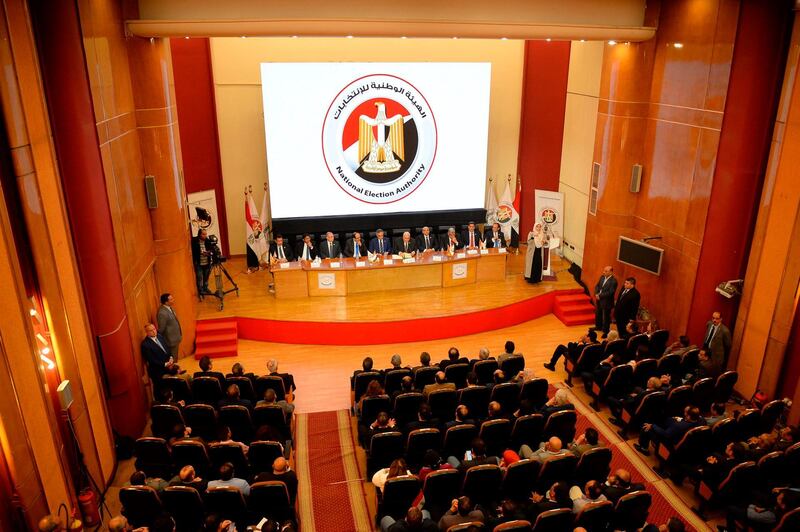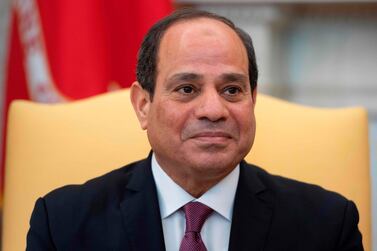President Abdel Fattah El Sisi could now be allowed to remain in office until 2030 after Egyptians backed major constitutional changes by 88.83 per cent in a nationwide referendum.
Ibrahim Lasheen, chairman of the National Election Authority, said that 27.19 million of the country’s 61.34 million registered voters had cast a ballot.
About 2.94 million voters voted against the changes in the hurriedly arranged, three-day referendum that ended on Monday.
Mr Lasheen said the voting was carried out in a "democratic climate filled with freedom" and signalled the "entrenchment of democracy in Egypt".
The changes include extending presidential terms from four years to six, while keeping the two-term cap in the 2014 charter.
But a new clause made for Mr El Sisi adds two more years to his current four-year term and allows him to run for a third, six-year term in 2024.
The former military leader came to office in 2014, a year after he led the army's removal of divisive President Mohammed Morsi.
Me El Sisi was re-elected in 2018 for a second, four-year term after he ran virtually unchallenged, with his only rival being a little-known politician known to be a supporter.
Critics say the amendments are a return to the era of Hosni Mubarak, Egypt's president of 29 years who was forced to step down in 2011 by a popular uprising.
Mr El Sisi, 64, has made security, stability and overhauling the economy his top priorities, embarking on major infrastructure projects and increasing the fight against insurgents in the Sinai Peninsula.
He has also overseen a crackdown on dissent and the introduction of restrictive laws covering rights groups and the media.
Me El Sisi insists that the rights to education, medical care, jobs and housing are as important as freedom of expression and human rights.
Other amendments approved by the referendum include granting the military the role of "guardian" and "protector" of the state and its institutions, and giving the president significantly more control over the judiciary.
They allocate 25 per cent of parliamentary seats to women and demand a "suitable" representation for minorities, Egyptian expatriates and people with special needs.
An upper house, or Senate, will be formed and Mr El Sisi will appoint a large number of its members.
The president can also appoint at least one vice president for the first time.
On the streets of Cairo, crowds of people draped in Egyptian flags gathered outside polling centres to dance and sing.
Backers of the bill had hoped to ensure a turnout of at least 40 per cent to overcome criticism of the proposals.







